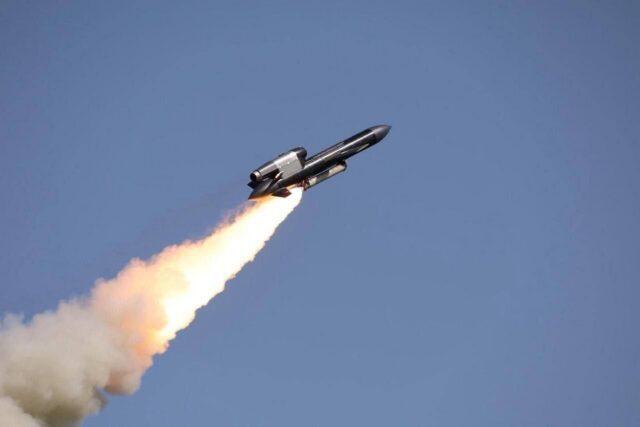Trump confirms Space Command HQ move to Huntsville, Alabama, reigniting political row over US space defence

September 3, 2025

President Donald Trump has announced that the United States Space Command will be permanently headquartered in Huntsville, Alabama, a move that reignites a multi-year political and strategic debate over America’s military presence in space.
The decision, revealed during an Oval Office address on 2 September, marks the formal reversal of the previous Biden administration’s 2023 ruling that kept the command in Colorado Springs.
Surrounded by Defence Secretary Pete Hegseth, Vice President J.D. Vance, and Alabama lawmakers, Trump said the relocation to Redstone Arsenal in Huntsville would strengthen the country’s position in the evolving domain of space warfare.
Trump on moving Space Command to Alabama from Colorado: They went to all mail-in voting. So they have automatically crooked elections. When a state is for mail-in voting, that means they want dishonest elections. That played a big factor also pic.twitter.com/lmDTHm1MYc
— Acyn (@Acyn) September 2, 2025
“I am thrilled to report that the US Space Command Headquarters will move to the beautiful locale of a place called Huntsville, Alabama,” Trump said. “This will result in more than 30,000 Alabama jobs…billions of dollars of investment…Most importantly, this decision will help America defend and dominate the High Frontier.”
While Trump claims the decision is strategically sound, the move has drawn sharp criticism from Colorado officials who argue it undermines military readiness and national security.
The basing battle spanning three presidential administrations has become one of the most politically charged defence infrastructure disputes in recent memory.
What is US Space Command and how does it differ from the Space Force?
The United States Space Command (USSPACECOM) is a unified combatant command within the US Department of Defense, charged with planning and conducting military operations in space.
Its functions include defending American satellites, enabling missile warning systems, and coordinating global positioning and space-based communication for combat forces.
Importantly, Space Command is not to be confused with the US Space Force, which was established in December 2019 as a distinct military service under the Department of the Air Force.

The Space Force trains and equips personnel, while Space Command operates as the command-and-control hub integrating space capabilities from all military branches, including Army, Navy, Air Force, and Marine Corps units.
Space Command was originally founded in 1985 at Peterson Air Force Base in Colorado Springs, but was dissolved in 2002 during post-9/11 military restructuring. In response to rising global threats in space, President Trump reestablished the command in August 2019.
Why Trump is moving Space Command headquarters to Huntsville, Alabama
Huntsville, once referred to as ‘Rocket City’, is a hub of American aerospace and defence innovation.
It houses the Army’s Redstone Arsenal, NASA’s Marshall Space Flight Center, and the Army’s Space and Missile Defense Command, making it one of the most militarised and space-focused cities in the country.
A Department of Defense site selection process initially identified Huntsville as the top candidate in 2021, based on infrastructure readiness, workforce quality, cost-effectiveness, and community support.
That conclusion was backed by a Government Accountability Office (GAO) review, although concerns were raised about the transparency and methodology of the selection process.

Despite its technical merits, the decision was frozen when President Biden took office. In July 2023, the Biden administration chose to keep the command in Colorado, citing risks to military readiness and continuity.
Now, with President Trump back in office following his 2024 re-election, the basing decision has reverted to its earlier conclusion.
“What you’re doing today, Mr. President, is restoring [Spacecom] to precisely where it should be, based on what the Space Force, the Air Force [and] your leadership [believe] will give us strategic advantage in the future,” Hegseth told the president.
Operational risks of relocating Space Command
Operational continuity during the handover also remains a key concern. Specific risks are around:
- Disruption to continuity (HQ only reached full capability in 2023)
- Personnel attrition risk
- Possible delays to mission execution
- Construction time estimates (14–18 months)
While Alabama officials have offered temporary facilities at no cost while the permanent headquarters is under construction, Peterson Space Force Base in Colorado Springs will remain the provisional HQ until Huntsville is fully ready to assume command functions.
No definitive date has been set, but estimates suggest a construction period of 14 to 18 months.
Military leaders are expected to implement a staggered transition plan to minimise disruption, though critics argue the disruption is inevitable and could hinder critical mission activities in an increasingly contested space domain.
Proponents, however, insist that the long-term strategic advantages of a permanent facility in Huntsville outweigh the short-term operational hurdles.
Political battle over Space Command headquarters intensifies
Although President Trump has denied political motivations, critics point to his own remarks as evidence that electoral dynamics played a role.
“One of the big problems [with Colorado] is they do mail-in voting … so they have automatically crooked elections,” Trump said during the announcement, repeating a claim widely debunked by election officials and independent audits.

Alabama, a staunchly Republican state that supported Trump in all three of his presidential campaigns, has long lobbied for the command. Its lawmakers hailed the decision as a long-overdue correction.
“Space Command is finally coming home to Alabama,” said House Armed Services Committee Chair Mike Rogers. “Alabama was chosen in 2021 because it was the absolute best location for the headquarters. Today, in 2025, it remains the best.”
In contrast, Colorado, which is increasingly Democratic in recent national elections, has decried the decision as politically motivated and strategically flawed.
Colorado’s entire congressional delegation, including both Republican and Democratic members, condemned the move in a joint statement.
Entire Colorado Delegation Statement on Space Command Relocation pic.twitter.com/Xhnu9qnP8t
— Senator John Hickenlooper (@SenatorHick) September 2, 2025
“Moving Space Command sets our space defence apparatus back years, wastes billions of taxpayer dollars, and hands the advantage to adversaries like China, Russia, Iran, and North Korea,” the delegation said.
Officials highlighted that Space Command had only just reached full operational capability at Peterson Space Force Base in December 2023.
Space Command is fully operational and has been for nearly two years. We’ve got a mission-ready team that’s already prioritizing American safety each and every day in Colorado Springs.
— Senator John Hickenlooper (@SenatorHick) September 2, 2025
Moving Space Command is just plain wasteful and straight-up dangerous.
Relocating its headquarters, they argue, could disrupt continuity, risk attrition among experienced personnel, and delay critical mission execution at a time of heightened geopolitical threats.
Senator Michael Bennet and Governor Jared Polis both criticised the decision as undermining military preparedness.
“This is a blatantly political decision,” Bennet said. “His comment about winning Alabama by 47 points says it all.”
Economic and strategic advantages of the move
Supporters of the move cite significant economic and military benefits for Alabama. Congressman Dale Strong, who represents Huntsville, estimates that the relocation will bring over 30,000 jobs and hundreds of millions in new investment.
The region’s long-standing infrastructure, skilled workforce, and institutional alignment with space operations are seen as major assets.
"I am thrilled to report that the U.S. Space Command headquarters will move to the beautiful locale of a place called Huntsville, Alabama — forever to be known, from this point forward, as ROCKET CITY." –@POTUS 🇺🇸🚀 pic.twitter.com/4kPwgpFGay
— The White House (@WhiteHouse) September 2, 2025
Redstone Arsenal is also offering temporary facilities at no cost while the permanent headquarters is built, a move expected to accelerate the transition process.
Construction is estimated to take between 14 to 18 months, although that timeline could vary depending on legal or legislative delays.
Colorado Attorney General Phil Weiser has warned of possible legal action, stating that his office has been preparing for “an unlawful decision to move Space Command HQ.”
However, the US President has broad powers as Commander-in-Chief to determine military basing, and Congress controls funding, making the legal pathway uncertain.
Senator John Hickenlooper said lawmakers would “leave no stone unturned” in exploring options to reverse or delay the decision through legislative mechanisms.
What the Space Command move means for US space defence
The Space Command saga encapsulates the rising importance of space as a warfighting domain and how geopolitical, economic, and political interests intersect in determining America’s military posture.
From a strategic standpoint, the move to Huntsville consolidates military space operations in a single, defence-oriented location.
“Whoever controls the skies will control the future of warfare; and, Mr. President, today you’re ensuring that happens,” Hegseth said.
#USSPACECOM might be the newest combatant command, but our logo embodies our enduring mission, warfighting ethos and vision for the future. Learn more about the symbols and colors on the logo below. 👇 pic.twitter.com/Aqn37H4Eis
— U.S. Space Command (@US_SpaceCom) August 27, 2025
However, any possible loss of operational continuity, personnel disruption, and potential delays in achieving full capacity again could come at a critical moment as space becomes an increasingly contested domain.
Whether this relocation strengthens national security or introduces unnecessary risk remains a point of debate and one that will likely continue for years.
The decision to move US Space Command underscores the complex interplay between military strategy and domestic politics.
While Huntsville’s technical qualifications are widely acknowledged, the timing and manner of the announcement have drawn scepticism from military leaders and lawmakers alike.
As the United States confronts growing competition in space, the true test of this decision will be whether it enhances the nation’s ability to defend its assets beyond Earth or leaves it vulnerable at a pivotal moment in global defence history.
















